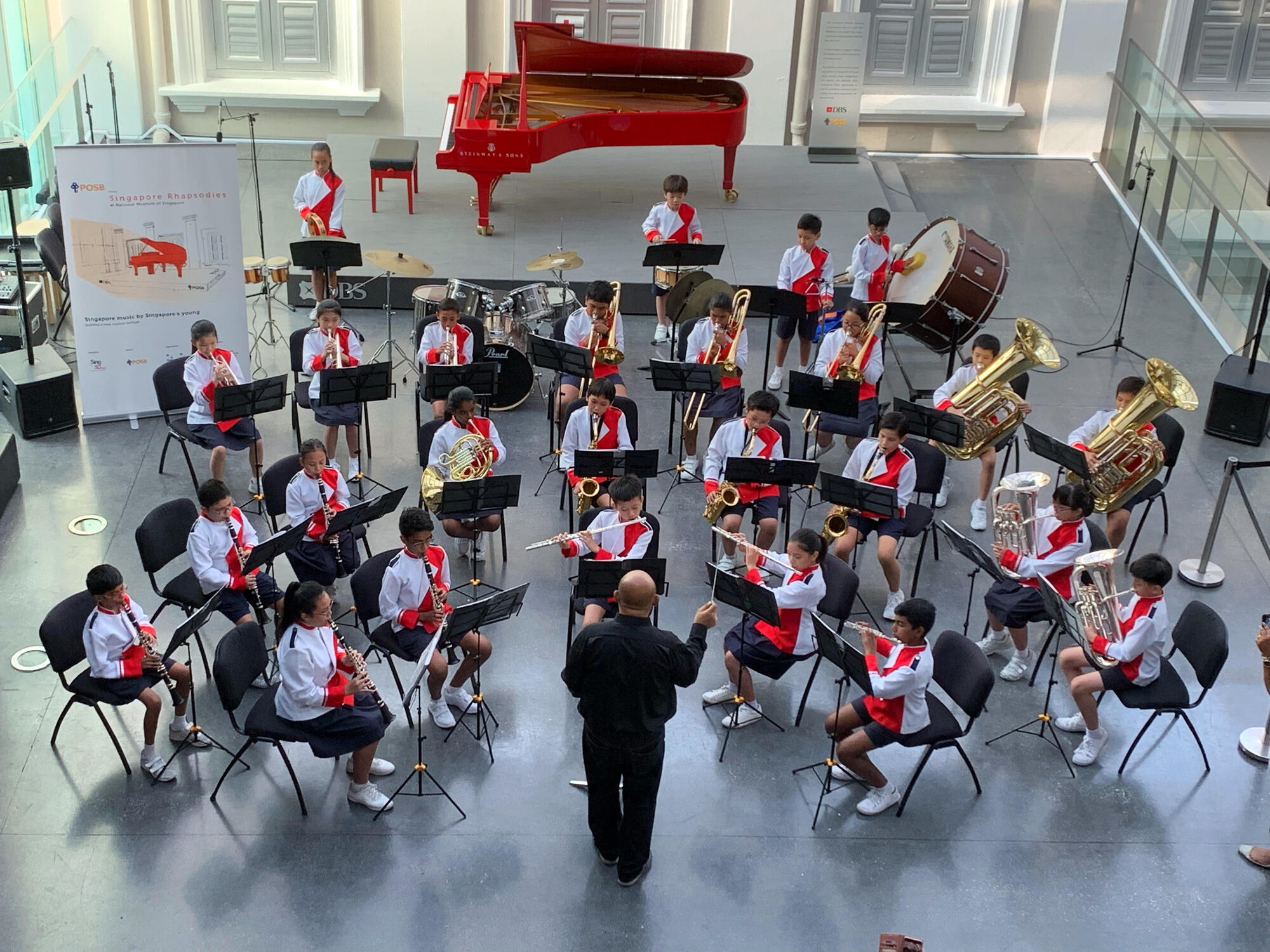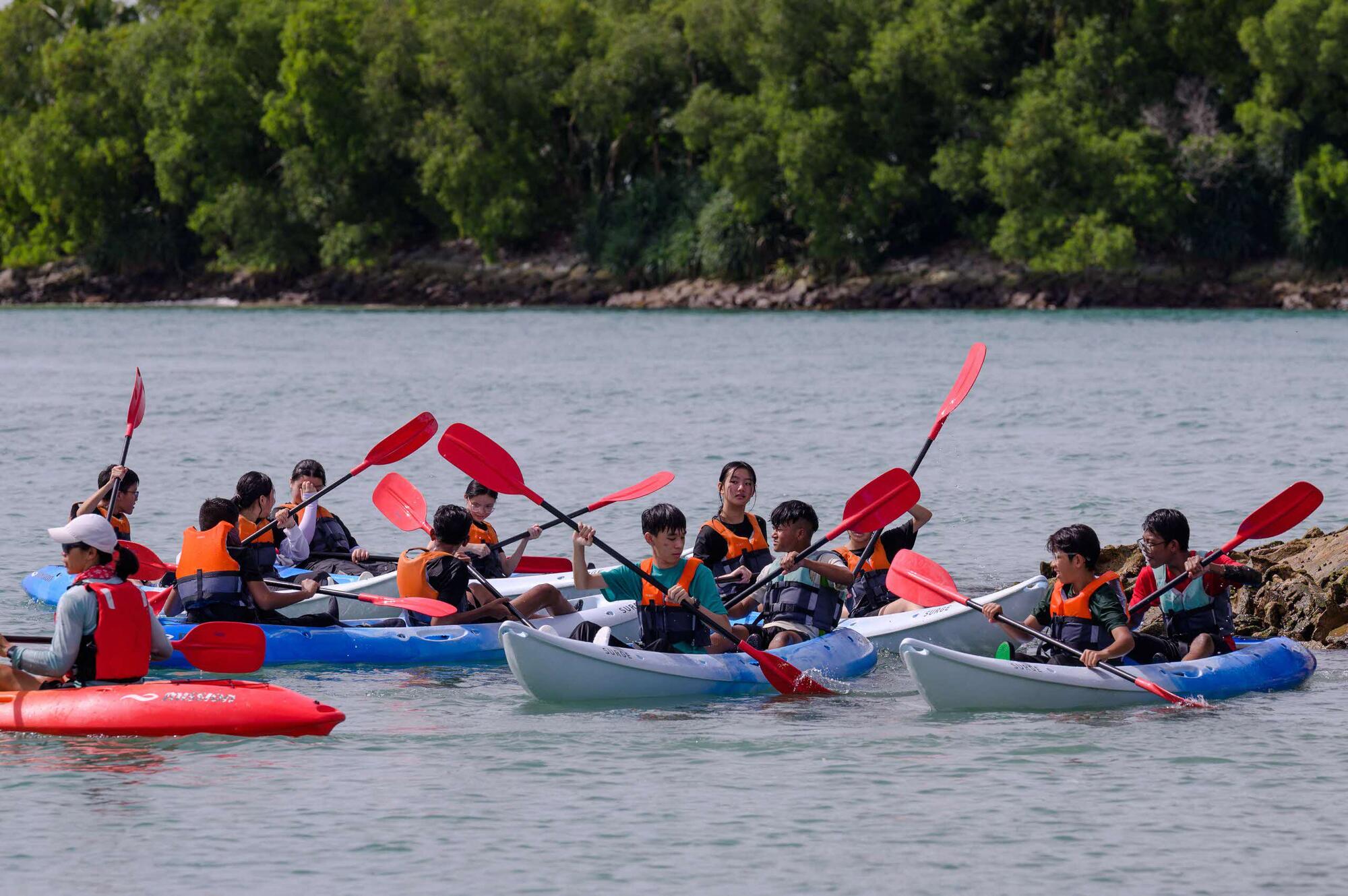“CCA is a waste of time; focus on lessons and homework!”
We often hear this – and possibly other – misperceptions of CCA. We debunk this way of thinking and explain why our children will still need CCA…
“CCA is a waste of time. You’re better off channelling your time and energy into things that matter; i.e. tests and exams.”
CCA plays a huge part in enriching the students’ lives outside classroom. Skills and values, which cannot be directly taught from textbooks per se, can be complemented via lived experiences. Collective efforts to gather materials for a campfire and striving to do better from failures in a competition, for example, are practical ways to instil camaraderie and teamwork, build resilience and character, promote competition rigour and nurture an excellence mindset. Besides sports and uniform groups, interest-based programmes also give students added multi-disciplinary exposure and help build competencies. All these qualities will come in handy at work and in relationships where interaction is key for collaborative growth.
Further, research has shown that kids need some outdoor and leisure time outside of school in order to upkeep their mental and developmental wellness. There is a limit as to how much the brain can absorb for effective learning, so CCA can provide a good reprieve from the daily grind.
“Doing well in CCA competitions and presentations adds to the DSA advantage. It could also help my child in getting 2 additional cut-off points in his application to the various post-secondary educational institutes.”
Direct School Admission (DSA) is a programme that recognises different types of talent, which may not be shown through the national exams. CCA is just one of the possible platforms to uncover and develop talent. “Doing well” in a CCA might help but is not necessarily the “be all, end all” approach when it comes to DSA per se.
On the second point: to “do well” in CCA constitutes many components. Under the LEAPS 2.0 Recognition Scheme for secondary school students, students will be recognised as a whole under 5 domains: Participation, Achievement, Leadership, Service and Enrichment in the Co-Curriculum as they progress through their schooling years. In this case, doing well in competitions and presentations comes under the Achievement domain. There are other factors to consider from the other domains as a whole, which may not necessarily have to come from CCA. LEAPS 2.0 applies to non-CCA commitments, such as student leadership and service learning, as well.
<For a more detailed breakdown of LEAPS 2.0, click here.>
“CCA is compulsory.”
While CCA is compulsory for secondary school students, it is non-mandatory for Primary School pupils (Primary 3 and above). However, there are merits to attending CCA in Primary School, where teachers can observe and guide the students within the continuous environment of the school, chart their character development holistically and allow them to learn, grow and stretch themselves non-academically. The qualities that these experiences nurture will stand the students in good stead as they head to secondary school and beyond.
“Can I enrol my child in a preferred programme outside of school – and register it for CCA points?”
The objective of CCA is to allow students to experience an all-rounded prospectus within the school context. A student’s involvement in an external organisation cannot replace the need for students to participate in a school-based CCA.
However, a school can exercise discretion to endorse a child’s external stint – and recognise the involvement – if, for instance, it meets the broader educational outcomes of CCA in the school. Case in point: a child’s taekwondo training outside of school cannot be recognised under LEAPS 2.0’s Participation domain because it is not a school-based CCA. However, a representation and/or achievement in this involvement (be it in the form of competition) that is not solely for social interaction or personal self-enrichment can be recognised under the Achievement domain – subject to the school’s approval.
“I’ll have to be content with a CCA I dislike once I’m ‘assigned’ to it.”
It is not all doom and gloom if you “happen” to be allocated to a CCA of your last choice. Give it time and your best shot, and keep an open mind to see how things will pan out. Mastery of skillsets you had not expected or planned for, and the friendships forged can play a big part in shifting one’s mindset. If you give up at first instance, you might not know what you have missed.
Try to work towards a set of goals. But if after a while, this does not work out, you can ask to change your CCA. Most schools do allow at least one change of CCA after a certain period. Students could also discuss their CCA memberships with relevant teachers to explore feasible alternatives on a case-by-case basis. In some schools, students could even propose to start a new activity, pending resourcing, assessment and approval by the school.
As school reopens, do take some time to check out various CCA orientation programme and open houses to be exposed to their culture and demands. Chat with the seniors in the CCA to have a better first-person view of the activity. CCA are meant to enrich your learning experience in schools, so do commit to it and enjoy your time picking up a new skill with like-minded friends in the new year.





-(1)ae9179a7a8a66eb2afccc900c73e6f2e.jpg)
